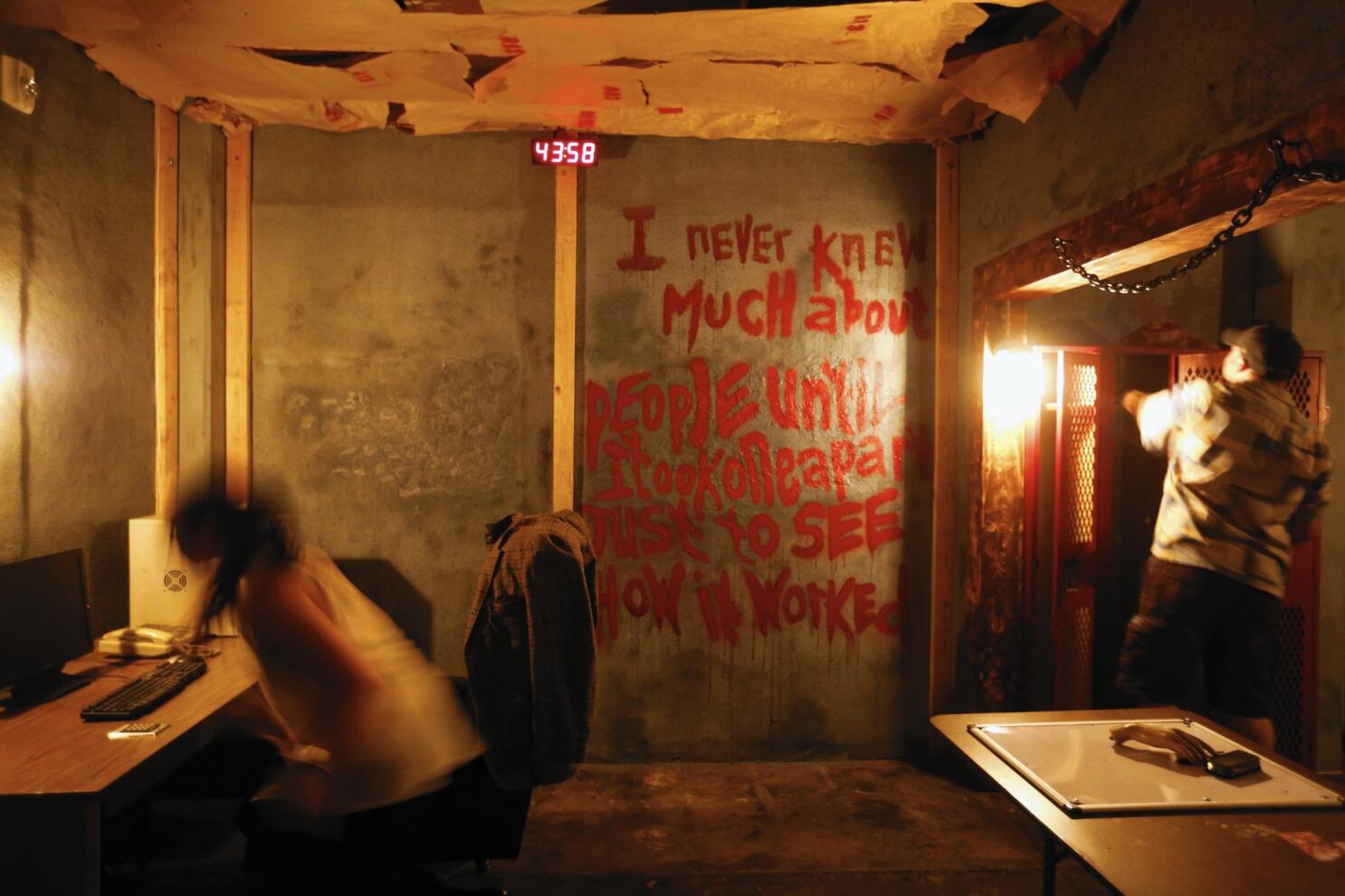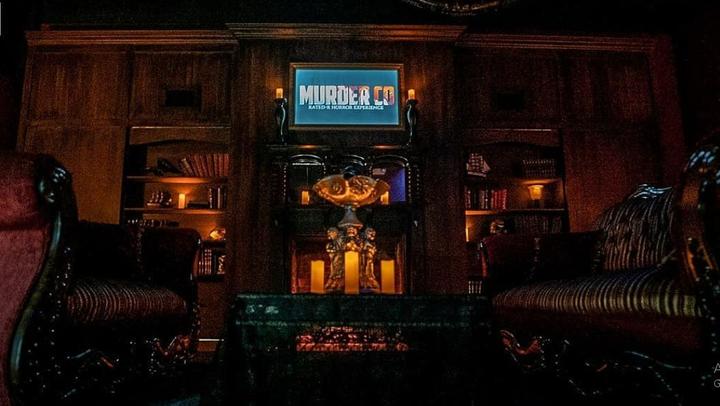Team Tasks at Minneapolis Escape Room-- Perfect for Buddies and Family members
Team Tasks at Minneapolis Escape Room-- Perfect for Buddies and Family members
Blog Article
Group Strategies: Exactly How to Work together Successfully in a Getaway Area
Teams must actively pay attention to each member's understandings, assign functions that line up with specific toughness, and keep routine check-ins to make certain emphasis and prevent redundancy. By cultivating a setting that values communication and versatility, groups can considerably enhance their efficiency and success prices.
Establish Clear Communication

To assist in clear interaction, it is necessary to assign a central point of get in touch with for info dissemination. Short, focused updates from each team member can keep the team notified without frustrating them with information.

Designate Functions Strategically
While clear communication establishes the structure for reliable teamwork, assigning functions purposefully makes certain that each staff member's strengths are used properly. In a getaway room situation, the time-sensitive and complex nature of challenges requires a well-organized method to job delegation. By identifying and leveraging specific proficiencies, groups can optimize their analytic abilities and boost general efficiency.
First, examine the unique abilities and features of each participant. Someone with a keen eye for information might stand out in locating hidden items, while a rational thinker could be better suited to solving challenges. It's equally vital to have a leader that can manage progression, take care of the timeline, and make definitive telephone calls when required. This function frequently calls for solid business and interpersonal skills.
Second, make sure that functions are adaptable and adaptable. As brand-new obstacles emerge, the group has to be able to pivot, reapportioning jobs as required. This versatility assists preserve momentum and protects against bottlenecks that can take place as a result of rigid role projects.
Inevitably, a strategic technique to duty assignment not only makes best use of the toughness of each employee yet also cultivates a natural setting, driving the team towards an effective retreat.
Utilize Diverse Abilities
Recognizing and taking advantage of the diverse abilities within your team can dramatically boost your efficiency in a retreat space. Each employee brings unique toughness to the table, and effectively leveraging these abilities can quicken problem-solving and enhance total performance. As an example, a staff member with strong analytical abilities might stand out at deciphering complex codes or patterns, while another with keen empirical abilities may swiftly detect surprise ideas that could forget.
Encourage group participants to voice their understandings and ideas immediately, guaranteeing that all possible solutions are considered. In addition, designating tasks that straighten with each member's toughness can prevent traffic jams and make certain that progress is continuous.
Additionally, variety in skills often equates to variety in assuming styles, which is very useful in a getaway room setting. While some challenges might need logical reasoning and accuracy, others might take advantage of creative and lateral thinking. By identifying and leveraging this variety, groups can resolve a more comprehensive variety of obstacles much more properly, thereby increasing their chances of an effective hop over to here getaway.
Manage Time Successfully

Recognize Learn More visible puzzles and divide jobs based on group members' strengths, guaranteeing that nobody is still. This practice can assist keep the group concentrated and protect against time from sliding away unnoticed.
In addition, stay clear of one-track mind. If a problem is taking as well long, rotate group members or go on to another difficulty, returning later on with fresh viewpoints. Interaction is extremely important-- maintain everybody updated on resolved puzzles and continuing to be tasks to avoid repetitive initiatives.
Lastly, make use of any kind of tips or clues sparingly yet purposefully - best escape room. Understanding when to request for assistance can conserve useful time. By sticking to these time administration principles, teams can substantially enhance their opportunities of a successful and delightful getaway area experience
Debrief and Show
Reflection is an important element of group advancement and improvement in the context of retreat rooms. Once the difficulty is finished, whether effectively or otherwise, it is important for the team to take part in a structured other debriefing session. This procedure enables staff member to examine their performance, identify strengths, and determine locations for enhancement.
Begin the debrief by reviewing what worked out. Highlight details circumstances of effective communication, analytic, and collaboration. Identifying these favorable actions reinforces them and encourages their rep in future obstacles.
Talk about moments of complication, miscommunication, or inefficient strategies. Encourage an open and positive dialogue where team participants can share their point of views without fear of objection.
Final Thought
To conclude, effective cooperation in an escape area is predicated upon clear interaction, tactical role assignments, the efficient application of diverse skills, and skillful time administration. Regular check-ins and organized debriefings are important for keeping emphasis and promoting constant improvement. By developing a natural and adaptive group environment, the likelihood of effectively fixing challenges and accomplishing the objective of getting away the space is considerably enhanced. This approach not only makes certain success yet likewise promotes collective growth and discovering.
Report this page